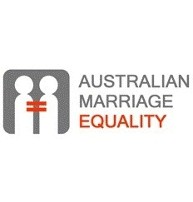 Marriage equality advocates have welcomed a proposed motion from federal independent MP, Andrew Wilkie, aimed at reassuring concerned Christians that religious celebrants will not be forced to perform same-sex marriages should such marriages be allowed.
Marriage equality advocates have welcomed a proposed motion from federal independent MP, Andrew Wilkie, aimed at reassuring concerned Christians that religious celebrants will not be forced to perform same-sex marriages should such marriages be allowed.
Australian Marriage Equality national convener, Alex Greenwich, said the motion will send a strong message to faith communities that their freedom will be protected.
“People of faith have nothing to fear from allowing same-sex marriages because religious celebrants will remain free not to carry out such marriages”, Mr Greenwich said.
“The same rules which allow, say, Catholic celebrants not to marry divorcees will apply equally to same-sex couples.”
“AME respects the right of religious bodies to decide who they do and do not legally marry, and in return we hope they respect the right of same-sex partners to enter civil marriages.”
“Our message to people of faith across Australia is that we come in peace”
Mr Greenwich said the announcement of the motion comes at a key time in the debate:
“The major opponents to reform within the Labor Party are the Party’s ‘Catholic Right’ and our message to them is that the Church has nothing to fear from this reform.”
“There is no need for a conscience vote on this because there is no religious freedom or theological doctrine at stake.”
Mr Wilkie has tabled a motion in the House of Representatives which declares:
“Should the Marriage Act be amended to allow same-sex marriages the amendments should ensure the Marriage Act imposes no obligation on a minister of religion to solemnise such marriages.”
It is expected the motion will be debated early next year.
See below for statements by two Uniting Church ministers and by Andrew Wilkie.
For more information contact Alex Greenwich on 0421 316 335
STATEMENTS FROM CLERGY:
Rev Bill Crews (Uniting Church Minister, Sydney):
“Today in Australia we all live in a secular non discriminatory society. Churches and other spiritual institutions exist within this society. It seems to me that in a secular and non discriminatory society gay couples should be as free to marry as any other human couple. If people wish to be married within a religious or spiritual institution’s framework then they should accept the rites and rules of that institution. However it is the state that legitimises all marriages.”
Rev Roger Munson (Uniting Church Minister, Canberra):
“As a follower of Jesus I believe in the principle of radical hospitality. This is at the heart of his message. All are welcome and all deserve the dignity due to them as human beings. I believe we express this through human rights and so access to marriage, a public expression of commitment and love, is an essential part of being human and an inalienable right. As a progressive Christian I understand that the bible must be interpreted in its historical and cultural context but also through the prism of the way of Jesus. As Christians we need to support those who are excluded and challenge those who through exclusion dehumanise and discriminate. I urge you to join the campaign to welcome our GLBT friends to express their love and commitment to each other through this special rite.”
STATEMENT FROM ANDREW WILKIE: PROTECTING THE RIGHTS OF CHURCHES
The Independent Member for Denison, Andrew Wilkie, is calling on Federal Parliament to ensure that any changes to the Marriage Act do not force churches to marry same-sex couples.
“The debate about marriage equality should be about dealing with the legislated discrimination in the Marriage Act. It need not be a debate about religion or who can get married in a church,’’ Mr Wilkie said.
“Churches are private institutions and obviously it must remain up to them who they marry.’’
Mr Wilkie has given notice of a motion “that should the Marriage Act 1961 be amended to allow for the marriage of same-sex couples, any such amendment should ensure that the Marriage Act imposes no obligation on any church or ministers of religion to perform such a marriage’’.
“The Marriage Act needs to be amended, because as it stands it treats some people as second-class citizens simply because of the sex of the people they want to marry,’’ he said.
“This is a very important and divisive issue that people feel strongly about and we need to show respect for everybody’s point of view.
“I believe this motion goes some way to respecting both sides of the debate by recognising the religious dimension and preserving the right of churches and minsters of religion to choose who they marry.’’
Mr Wilkie expects the motion to be debated early in the new year.
FURTHER INFORMATION: Philippa Duncan 0428 528 673
